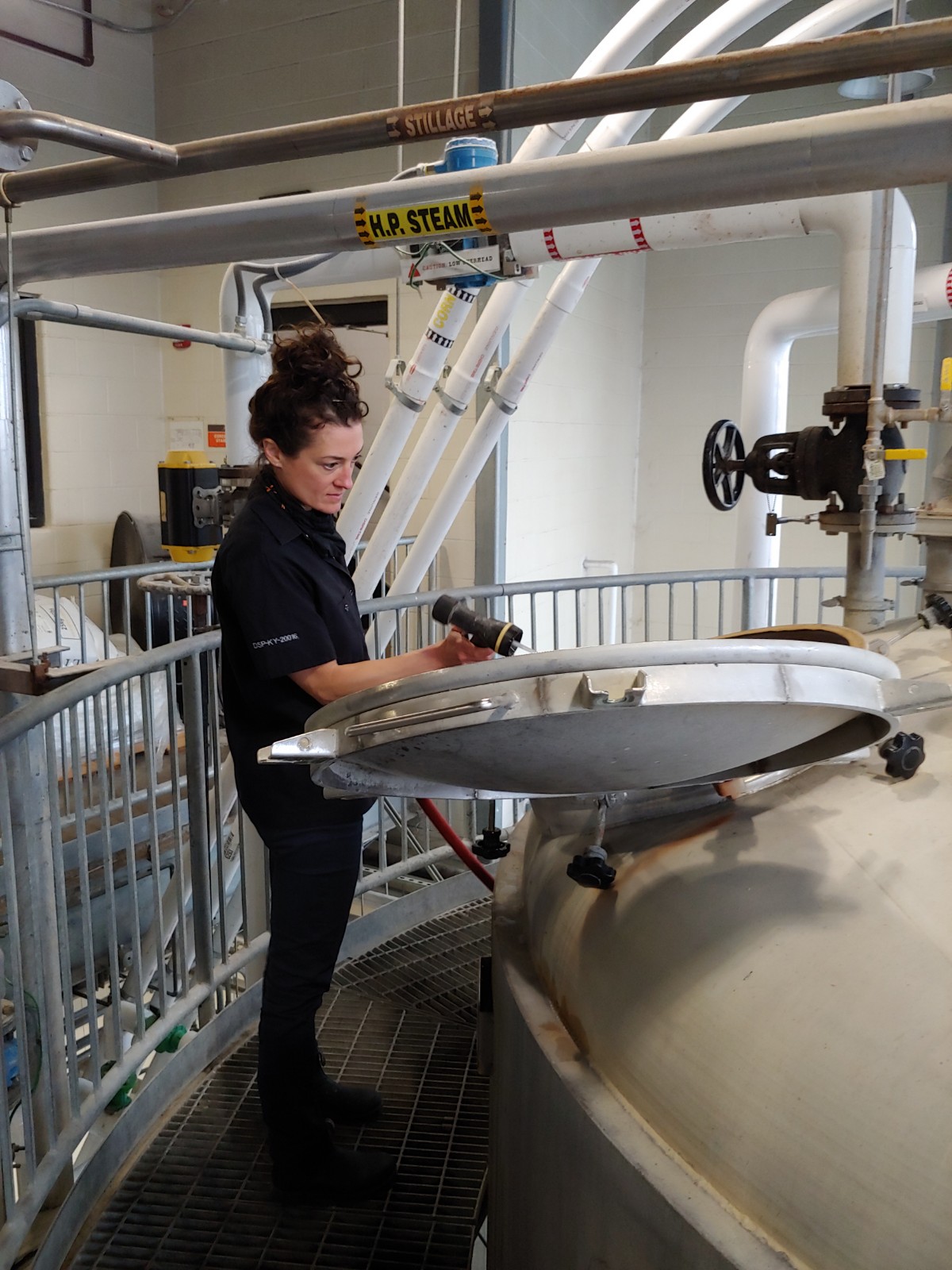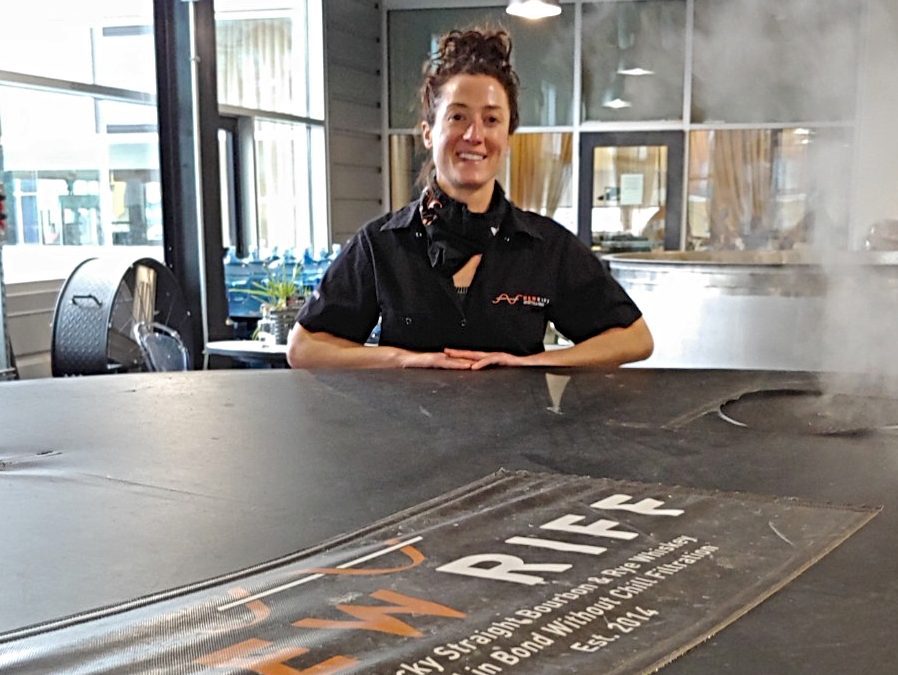Find our upcoming events here!
Stephanie Batty is the lone woman on the distilling crew at New Riff Distillery. She has a background in Urban Planning, which includes a degree from the University of Cincinnati’s College of Design, Art, Architecture and Planning. She has been everything from a licensed massage therapist to a baker of artisan breads, and while she joined the New Riff team as an event coordinator, she quickly realized she wanted to learn distilling and joined the distilling team in 2016. Bourbon Women recently caught up with Batty to learn more about her journey.
BW: You have a really interesting background. What was the moment that you looked at a distillery (or glass of whiskey or whatever) and decided you want to make that?
SB: In all honesty, that moment didn’t happen until I was already working at the distillery. When I started at New Riff, I was working three part-time jobs, and a friend asked me if I wanted to work a day a week at a new distillery that was opening soon. I’m not afraid to work, so I took the job thinking it would be another opportunity to experience and learn something new and make money. I’ve always preferred a more manual, hands-on job, so once I had a solid grasp of what a distiller’s day consisted of, I latched onto the idea. A couple of years after being here there was talk that a distiller’s position may open up, and I made it very clear that I wanted the job.
BW: What does a typical day look like for you as an assistant distiller?
SB: We (distillers) have been trained and run every aspect of the process. On the days that I’m cooking I’ll do everything that a mash requires – I’ll mill the grain, transfer that grain to the cooker with the addition of water and backset, and transfer the cook to a fermenter once the cook is complete. There is a lot of waiting and watching numbers, temperatures, and the clock. On the days that I’m running the column still I’m transferring fermenters to the beer well, which is a holding tank that feeds the still, adjusting the proof on the low-wines and high-wines and transferring the alcohol to a gauge tank which will then be barreled. We run two shifts a day, four days a week, and we do three mashes and three distillations a day. I also do a small amount of data entry with our distilling software, and when we make gin I’ll help with that.
BW: There are obviously a lot of crossovers between being an artisan bread maker and a distiller. What are some of the skills you use regularly that apply to both?
SB: Patience. You weigh and mix a few simple and similar ingredients and you wait. You’re working with something that’s alive. You’re using basic ingredients and making it into something delicious. While you’re making it, whether it be bread or whiskey, you need to know and be aware if you are where you should be along the process at that specific time. You try to provide the best ingredients and conditions so your end product is the best it can be.
BW: What was the hardest part of learning the technical aspects of distilling?
SB: I’m still learning a lot. I did not come from a science background so I’m constantly trying to read and educate. Yes, I can make whiskey, I know the process, I do know a lot, but learning all of the science behind every minute aspect of fermentation, grains, barrels, still style, etc., it can seem never-ending. But never-ending in a good way. I just feel like I can always learn more and I want to learn more. You have to keep in mind I’ve only been doing this for a little over 4 years so I have a heck of a lot more time in me! Another very simple part of my job that took me a while to accept is the standing around watching and waiting, making sure the process is going as it should. It’s hard for me to sit still at work, I feel like I always need to be doing something and the majority of my job is just observing.
BW: Do you have any advice for women who want to become distillers?
SB: Make it known that’s what you want to do. I know my situation is not unique, but in the mix there was good timing (getting my foot in the door right from the beginning), some luck, and willingness to jump on any job that was asked of me. Don’t have an ego and have a positive attitude.

Photos Courtesy of New Riff Distilling


Great work, Batty!
Batty is amazing! Kudos!
Batty rules!
Congratulations Stephanie!!
Just picked up a case of your of your pick(blind pick) 7275-A generous nose loaded with oak, raspberry jam, biscochito cookie, warming cinnamon, honey and subtle cigar tobacco. The palate is layered with notes of vanilla wafer, creme brulee, baking spices